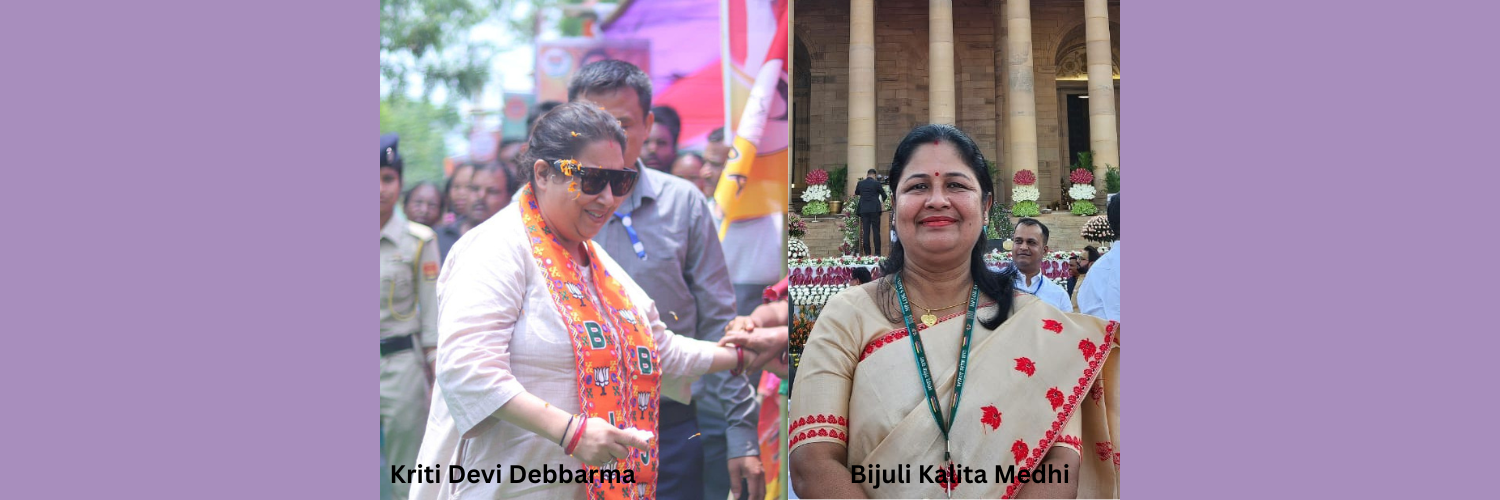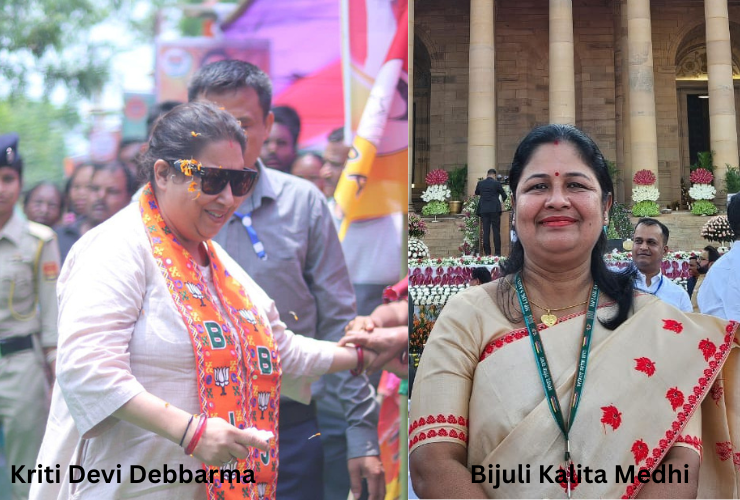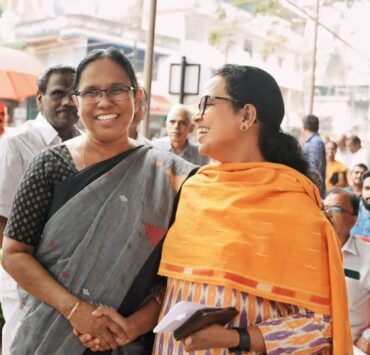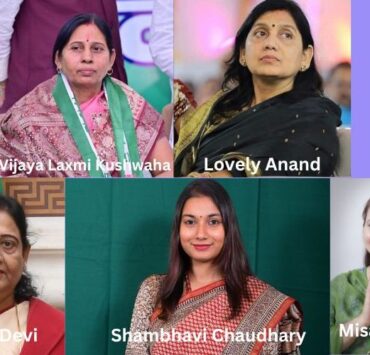
By Durba Ghosh

Only two women, both from the Bharatiya Janata Party (BJP), have made it to the 18th Lok Sabha (LS), one less than in the outgoing house. This time there was a total of 23 female candidates across the eight North Eastern states, which together have 25 seats in the Lower House of Parliament.
There is no woman from the North East in the newly sworn in Council of Ministers, although three MPs from the region have been included. Pratima Bhoumik from Tripura was Minister of State, Social Justice and Empowerment, in the last cabinet.
The biggest upset was the loss of the Tura parliamentary seat in Meghalaya, where Agatha Sangma of the National People’s Party (NPP) was the sitting MP, having been elected from the same constituency three times.
The two female winners in this election are the BJP’s Bijuli Kalita Medhi, who won the Guwahati seat in Assam, and Kriti Devi Debbarma, who was elected from the Tripura East constituency.
In the outgoing house there were three women representatives: the BJP’s Queen Ojah, her party colleague and Union Minister Pratima Bhoumik and Agatha Sangma – from Assam, Tripura and Meghalaya respectively.
Women contested in 14 of the region’s 25 LS constituencies, with the BJP putting up female candidates for two of the seats while its alliance partner, the NPP, and opposition party Indian National Congress (INC) also gave tickets to two women each. The remaining female candidates in the fray this time were independents.
Manipur (with two seats) and Nagaland (with one) had no women standing for election this year.
Meghalaya was the only state to have female candidates in both its Shillong and Tura seats, with the ruling NPP giving tickets to state minister Dr M Ampareen Lyngdoh as well as Sangma. Both lost the polls, finishing third and second in their respective seats. Lyngdoh and Sangma collectively polled 4,35,166 votes, which represents 25.41 per cent of the total of 17,11,967 votes recorded in the state.
With 12 female candidates, Assam had the highest number of women in the fray. The BJP retained the Guwahati seat but its sitting MP, Queen Ojah, who was also the only woman to win during the 2019 polls, was replaced by Medhi. Medhi was the only woman to be given a ticket in the state by the ruling BJP this time, while the Congress had put up two candidates: Mira Borthakur Goswami in Guwahati and Roselina Tirkey in the Kaziranga constituency. Both finished in second position.
Among the smaller parties, the Gana Suraksha Party had given tickets to two women, while the Hindu Samaj Party, the Gana Sangram Parishad, the Socialist Unity Centre of India [Communist] (SUCI[C]) and the Voters Party had fielded one woman each. In addition there were three female independents in the fray.
The Kaziranga seat had the highest number of women candidates – three, followed by two each in Guwahati and Kokrajhar (ST) and one each in Sonitpur, Darrang-Udalguri, Nagaon, Barpeta and Dhubri. The total of 12 women candidates in the fray collectively polled 23,39,898 votes, which is a mere 11.70 per cent of the total number of votes recorded in the recently concluded elections in the state.
In Tripura, the BJP’s Kriti Devi Debbarma won by a huge margin of 4,86,819 votes against her rival, Rajendra Reang, representing the Communist Party of India [Marxist] (CPI[M]), in the Tripura East constituency. Another female candidate, independent Archana Urang, received only 10,992 votes in the same constituency. The two women candidates collectively polled 7,88,369 votes, which is 33.63 per cent of the total number of votes recorded in both constituencies of the state.
In Tripura West, Union Minister Pratima Bhoumik, the first person to become a Union Minister from the state, was denied a ticket this time. Former Chief Minister Biplab Deb won the seat, for which there was no woman contestant.
Of the two seats in Arunachal Pradesh, there was no woman candidate in the Arunachal East constituency, while in Arunachal West, from where Union Minister Kiren Rijiju won, there was only one: Toko Sheetal of the Gana Suraksha Party. She finished fourth, garnering 30,530 votes.
In the lone seat in Mizoram, Rita Malsawmi of the Mizoram People’s Conference was the only woman among the six candidates in the fray and she finished last. Similarly, in the lone seat in Sikkim, independent candidate Beena Rai was the sole woman among the 14 candidates in the fray and she finished in tenth place, polling a mere 1125 votes.
Durba Ghosh has been a journalist for over three decades with an avid interest in writing about politics, gender, environment and art and culture. She is currently the bureau head of the Press Trust of India at Guwahati.




